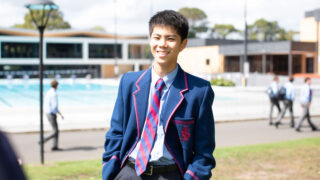Hong Kong clinical psychologist DR QURATULAIN ZAIDI of MindNLife looks at a parenting discipline dilemma – society’s tendency to normalise the act of disciplining children by spanking them – and how we as parents can do better.
“Life affords no greater responsibility, no greater privilege, than the raising of the next generation.” This quote by prominent health administrator C Everett Koop reflects my own strong belief on being a parent. (In fact, it’s the first thing you see when you visit my website!)
I was recently asked about my views on spanking, and it’s something I’m unequivocal about: spanking as a form of child discipline is NOT OKAY!

Research results
A new study led by Harvard researchers has shown that spanking can affect a child’s brain development in similar ways to more severe forms of violence. This research, published in the journal Child Development, builds on existing studies that show heightened activity in certain regions of the brain when children who’ve previously experienced abuse respond to threat cues. The researchers concluded: “While we might not conceptualise spanking to be a form of violence, in terms of how a child’s brain responds, it’s not all that different from abuse. It’s more a difference of severity than of type.”
Physically being hit tends to be among the few memories people retain very strongly from their childhood. Although it can, on occasion, be instantly effective in stopping embarrassing behaviours in your child – for example, shouting, swearing or hitting another child – spanking has a negative impact, and there can only be better ways to get children to listen. I strongly believe children should be protected from all forms of physical and mental violence and abuse. What’s more, using physical aggression in conflict resolution is not positive behavioural modelling for children.
Other studies have revealed that spanking predicts later academic and health problems. So, adults who were spanked as children have been shown to die at a younger age on average from cancer, heart disease and respiratory illnesses. Spanking is also associated with later aggressive behaviour, antisocial behaviour, anxiety and depression. Researchers at the University of Texas, for example, found a correlation between physical punishment as a child and dating violence as an adult.
Not every child is impacted in the same way – children can be resilient if exposed to potential adversities. However, the most important message is that physical punishment is a risk that can increase potential problems for a young person’s development.
The problem of normalising
Clearly, physical punishment impacts the emotional, psychological, relational, social and physical wellbeing of individuals. Yet, even in the face of all this research, many people don’t think about spanking as a form of violence. It’s most disturbing for me as a mental health professional and a parent to see spanking being normalised as an acceptable behaviour in many societies and cultures. These are some of the phrases you might hear repeated by adults who were spanked by their own parents: “It was for our own good”; “Spanking never hurt anyone”; and, “My parents spanked me and I turned out okay”.
To me, even the use of the word “spanking” has the effect of minimising and normalising the hitting of a child. I understand that the alternative “child abuse” might be overdramatic, and it implies a practice underpinned by the most vicious, high-level malice. However, weaker language can help create the unwanted effect of making the use of violence for conflict resolution seem somehow justifiable. And this is not okay.
What should we do?
We all know parenting is difficult and stressful; I’m the first person to put up my hand to say it’s one of the most challenging and rewarding roles I have in my life. Children don’t come with a manual, and there are days when it can feel like you’re doing everything wrong. However, spanking is a form of punishment, and punishments usually don’t work effectively in the long term. And exerting fear-based control over children is damaging to them.
There is no dispute that early exposures are critical to later social habits. Relationships with adults at a very young age shape how we learn to relate. The degree to which violence and perceived respect enter into that relationship is important. What’s best is teaching kids healthy relationship skills without resorting to physical or emotional threats.
#1 Respond, don’t react
If a situation arises where you feel some kind of discipline is required, give yourself time to pause and reflect. That way, instead of reacting in a physical way, you can create a measured response to the situation.
One key thing is to become aware of your patterns of interaction with your child. Explore whether these patterns are similar from the past, and reflect on the intensity of emotion attached to those earlier instances; you’ll then be able to see how your response in the past doesn’t belong to the current situation, and make a conscious choice about how to respond differently. Recognising and letting go of old patterns can help parents disengage from dysfunctional or even abusive parenting interactions.
#2 Rupture and repair
The idea of “rupture and repair” was proposed by child psychiatrist Daniel J Siegel and early childhood expert Mary Hartzell. Understanding this concept can help parents deal with conflicts that occur with their children and adolescents in general.
Conflicts that lead to spanking are a rupture in the attachment relationship between a parent and their child. What is important is that we go back after such a conflict and repair the relationship; this means returning to a child once emotions have calmed, in order to revisit what happened.
It’s important to ask children to share their emotional reactions and for parents to empathise with them by validating this emotional experience and helping them to understand and accept their emotional state. In turn, this helps parents and children develop empathy and compassion for themselves and others, and it also restores the emotional closeness and safety of the child-parent relationship. That way, parents can remain the safe, secure base for children to return to when they are upset. This, in my experience, is far more useful and valuable than resorting to physical abuse.
So, we need to stop and manage our emotional state, create a response to the situation rather than react to it, and, if rupture happens, ensure there is repair with empathetic validation.
As I said earlier, it’s not always easy … but who ever said parenting is easy?! Despite the challenges, we can learn to do better than resorting to physical forms of discipline.
Dr Zaidi is a British-registered clinical psychologist in Hong Kong who works with individuals, couples and families in her private practice in Central, and as a mental health consultant for a number of NGOs and international corporations.
2521 4668 | info@mindnlife.com | mindnlife.com
This article first appeared in the Summer 2021 issue of Expat Living magazine. Subscribe now so you never miss an issue.






